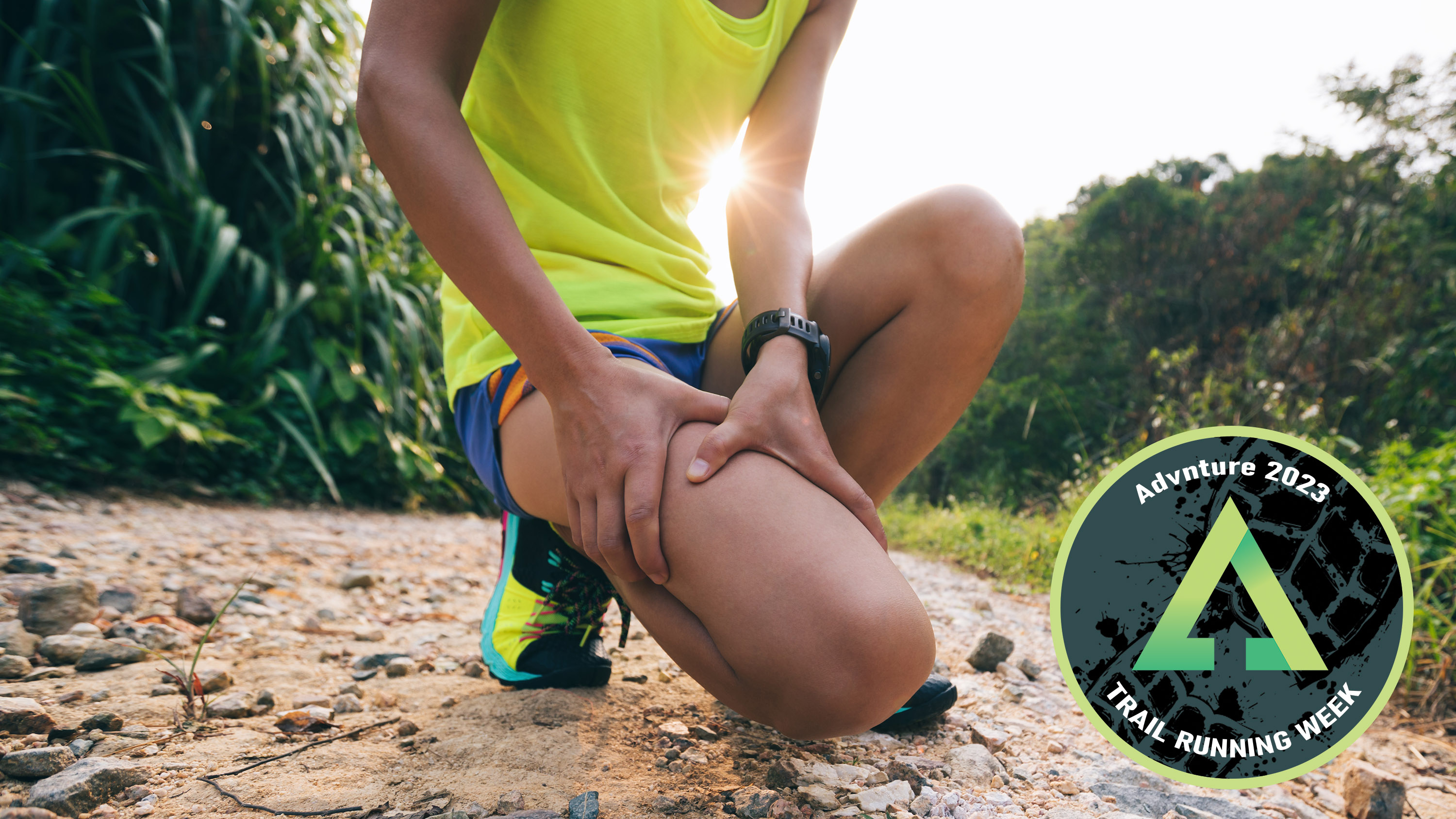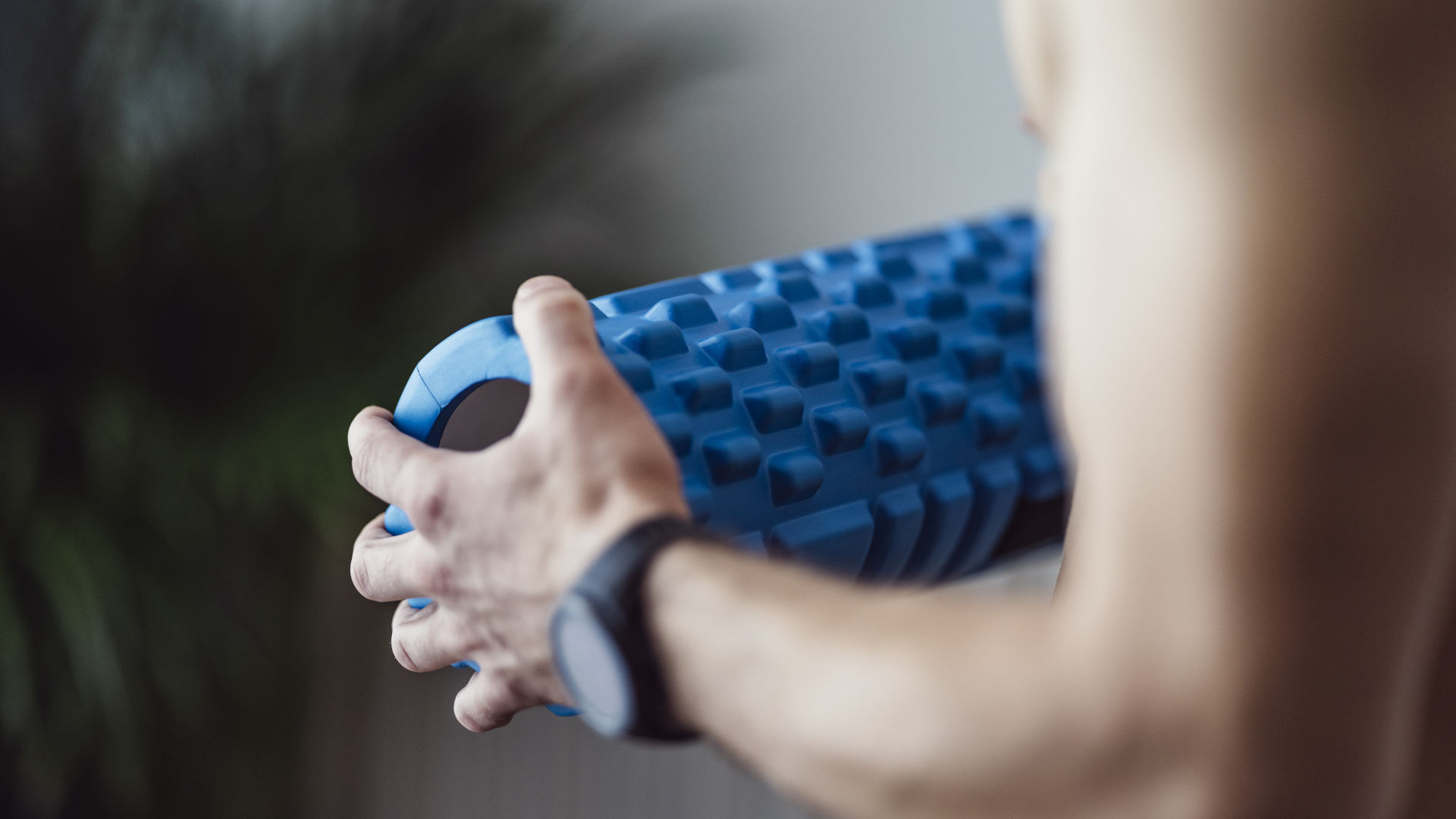7 easy running hacks to help avoid injuries
Following these tips will helpfully keep you on road and trail for longer

Beating running injuries is not just about regular strengthening routines and exercises focussed on your body’s weak areas. Although these are both super important and not to be ignored, there are seven other insanely easy (and often fun) hacks every runner should be doing to help avoid injury. One of them even involves lying down.
1. Sleep well
This sounds easy but it might actually be a biggie for you if you’ve got young kids, do shift work, have insomniac tendencies, are going through a stressful time or bothered by some other life-altering sleep-stealer. However, it’s really important to prioritize sleep as it’s so vital for your body’s repair processes.
There’s no use training hard if you don’t let your body recover enough. The aim for most adults is between seven and nine hours per night, and if you can’t get that all in one go then try power naps – lie down for 20 minutes in a dark place or with an eye mask (I use my running BUFF) and rest; even if you don’t fall asleep these can refresh you.
At night, practice good sleep hygiene – avoid caffeine late in the day, avoid alcohol and large meals late at night, avoid bright lights and screens an hour before bed, take a relaxing bath. Prepare your bedroom for a peaceful night with a cool temperature and low lighting, then sink into your pillow listening to a meditation app and let the snoozing commence.
2. Avoid overtraining
Overtraining can be difficult to spot as you need to stress your body in order to improve, which means you may think that feeling tired is normal. However, if you feel fatigued with sore muscles that don’t recover after a few days, you might be overdoing it, and that's where you might start to picking up niggles and injuries. Other signs include plateaued or worsened performance, feeling lethargic all the time, decreased mojo and feeling irritable or depressed. You might be gaining weight, getting ill a lot and your resting heart rate might be higher by around seven to ten beats per minute.
Your body needs time to recover and rebuild stronger, and if you don’t rest it will break down and become injured. On a regular basis, sandwich intense or long sessions with rest days or active recovery sessions such as walking, and do 10 minutes of strength work every few days, or a 30-minute session once a week. If you ignore the signs, overtraining can make things worse, but if you take a few days’ rest, sleep well, eat well and lighten your training volume and/or intensity, these effects can be reversed quickly.

3. Stretch and massage more
Massaging your body and easing it into positions that make you go 'ahh', is great for improving blood flow to recovering muscles for a quicker recovery and reduced risk of injury, but who gets the time (or has the money) for a full on spa day after every run? We may have the answer for you...
Advnture Newsletter
All the latest inspiration, tips and guides to help you plan your next Advnture!
Think about the time you spend on social media or in front of the TV. Some smartphones will even tell you what your screen time is that week, and it can be a frightening amount of hours when they're added up. So…maybe it isn’t too hard to fit in some daily stretching and self-massage if you did it while you scrolled or watched those screens? You can do a whole yoga routine in front of an episode of TV, or massage your legs while you watch Instagram reels. (A foam roller or massage gun can be helpful here.)
If you actively want to reduce your scrolling time you can get apps for your phone that alert you to your time on social media, and there are plenty of free running stretching and yoga for runners sessions on YouTube lasting anything from 10 minutes to half an hour – and let's face it, they'd probably be a much better use of your screen time than checking out what's happening on Facebook.
4. Eat well
Hmm, we like this one. Eating is often overlooked as a way to improve your recovery and help prevent injury, and many of us already know how to eat healthily. This is just about making more of those healthy choices more of the time.
All you need to do is eat lots of different-coloured fruit and veg (especially dark, leafy greens) for plenty of nutrients and minerals, along with protein-rich lean meat, pulses, beans and complex carbohydrates such as sweet potato and brown rice. A lack of iron (common in female runners) can lead to exhaustion so include dried apricots, nuts, chickpeas, sardines and a small amount of red meat. It’s good to eat fewer processed foods with high sugar and high fat contents but as runners we also need to keep up our energy, so cake, biscuits and crisps are nice to have during or after long, hard runs and races.

5. Cross-train
Cross-training, aka doing exercise other than running, uses different muscle groups, which is great for preventing overuse injuries, and if it’s lower impact than running – such as swimming and cycling – it helps you keep fit without putting the same stress on your joints. Cross-training is also fantastic for keeping your mind fit and healthy as you vary your week with something a bit different. Perhaps you’d like to try rock climbing, roller blading or belly dancing – every little helps, especially if it makes you smile.
6. Seek help quickly
Have you ever met a runner who has ignored their injury, not sought professional advice and asked instead for answers from the unqualified but enthusiastic hive mind of Facebook groups, self-diagnosed via Google, and then simply run on until it was too painful to continue? Or is this you…?
We all get the odd ache or pain when we run, but if something persistently bothers you, or a clear injury happens, do see a trusted sports professional rather than take your symptoms to the interweb. What helped someone else might even be harmful to you, so get a diagnosis from an expert and then do all the exercises they give you. You can often do them in front of the TV or while brushing your teeth – multi-tasking can be the key to fitting these into your day.
7. Let yourself recover
If a friend with a hacking cough asked you if they should train today, you’d probably say no, so why do we insist on dragging ourselves out while suffering the latest cold or bug that’s going round? None of us want to miss a day of our training plan, but it can be massively counter-productive and possibly even injury-inducing to run while you’re ill because your body needs to put its energies into getting you back to 100 per cent.
Easy exercise such as walking, yoga and stretching is fine if you’re going stir crazy, but intense exercise like running will overstretch your already hard-working immune system and prolong your illness, even if it’s just a sore throat, cold or runny nose. Eat healthily, rest, and you will recover faster. Go easy on your first week back into running to be sure your illness is totally over, then it’s back to normal. Until the next one…!
Read more in our guide to the dos and don'ts of running with a cold.
This article is part of Advnture's Trail Running Week 2023 (running from Monday 27 March to Sunday 2 April), our in-depth look at how to train smarter, choose the right gear, and have fun when things get muddy.
The co-founder and former editor of Trail Running magazine, Claire now runs the YouTube channel Wild Ginger Running, creating films about trail- and ultra-running advice, inspiration, races and gear reviews. An award-winning journalist, writing for outdoor and adventure sports magazines and websites, Claire's first book, The Ultimate Trail Running Handbook (5k to 50k), is out now. Her second, The Ultimate Ultra Running Handbook (50k to 100 miles), is out Autumn 2024. Claire also speaks and presents at events and races.

